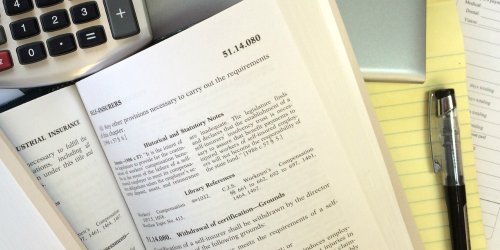L&I releases Benefit Accuracy Working Group report to Legislature
Feb. 8, 2016

On Friday afternoon, the Department of Labor & Industries released the interim report of the Benefit Accuracy Working Group, an employer-labor-department collaborative convened by the Legislature in 2015 to look for improvements in the accuracy, consistency, fairness, and simplicity of calculating time loss benefits in Washington.
The group began meeting in August, 2015, and has met four times so far. The Legislature requested an update report on its work by February 1. Click here for a copy of the report.
The Department acknowledges the "difficult assignment" tasked by the Legislature: "given the complex nature of our workforce and the ways in which our workforce is compensated makes it challenging to identify ways to simply the determination of wages while maintaining or improving fairness in benefits to injured workers and costs to employers."
The report identifies as a problem statement that over half of time loss claims tend to come from industries "that often work non-standard schedules or for variable compensation such as truck drivers, waitresses, construction, and agriculture" which makes the concept of a "usual monthly wage . . . something of an anachronism."
The Department states, "if we recognize that a routine or consistent monthly wage, and that the concepts of part-time, seasonal, and intermittent work may be outdated in Washington law, then we're free to look at other wage-setting methodologies."
The report critiques Washington's current methodology:
- Requirements are vague;
- Some requirements are difficult to administer, can result in uncertain benefits, and may cause disincentives for return to work; and
- Parts of the law cause varies results for workers when compared to other states.
Three sources of evidence in particular are highlighted as contributing to the workgroup's discussion. L&I convened a focus group of State Fund claims managers who shared common frustrations or complexities; the group looked at the high incidence of disputes on wage orders coming from industries with non-standard wage patterns; and the group looked at the early indications from Self-Insurance audit reform, noting that wage calculation issues were the top errors identified in non-standard audit results.
Identified next steps for the workgroup include focusing on the statutory definition of "wage" and related policies, working on legislation specifically around the payment of benefits to dependent children residing in a different household from an injured worker.
The group's final report with any recommendations is due back September 1.